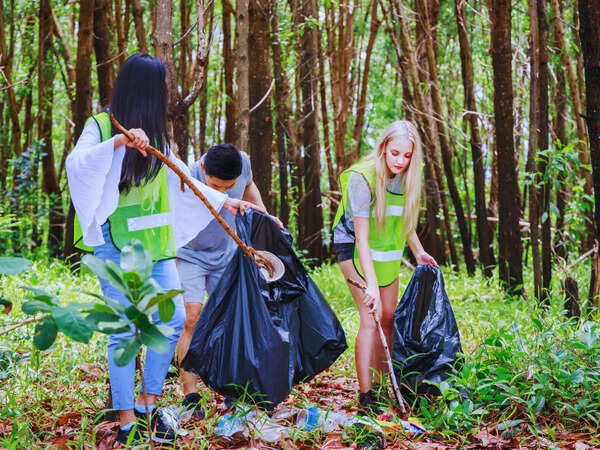- News
- lifestyle
- travel
- destinations
- Wander wisely: A guide to responsible summer travel 2025
Trending
Wander wisely: A guide to responsible summer travel 2025
This summer, embrace responsible travel by prioritizing eco-friendly transportation, greener accommodations, and respect for local traditions. Avoid overtouristed destinations, support local businesses, and pack light to minimize your environmental impact. By educating yourself and volunteering locally, you can ensure your travels leave a positive footprint and enrich both your experience and the communities you visit.
Summers’ already here and the world is once again ready to welcome vacationers and holidaymakers with thrilling adventures and more. But let’s not forget that there’s a growing impact of tourism on the environment and local communities.And today, it has become more important to consider how we travel more than before.We are talking about responsible travel or sustainable tourism. Let’s not call it a trend, but a necessary shift in how we travel/explore/discover the world. From reducing our carbon footprint to supporting local economies, there are several ways to make travel more ethical and eco-conscious.Here’s how to travel responsibly this summer:Eco-Friendly Transportation: Let’s not ignore the fact that transportation accounts for a huge share of tourism’s carbon footprint. Whenever possible, opt for trains, buses, or shared transport rather than flights and rental cars."I used to think flying was the only way to travel efficiently, but after taking a cross-country train trip last summer, I realised how much more enriching—and sustainable—it is," says Maya Jaiswal, a budding travel photographer based in Noida. For longer distances, if flying is unavoidable, consider purchasing carbon offsets.
Many must not be aware of the fact that some airlines offer this option during booking, or you can use many reputable programs.Choose greener stays: There is no denying that more properties and guesthouses are adopting sustainable practices—from energy-efficient lighting and water-saving systems to recycling programs and organic food sourcing. "I always try to stay at a green resort or guesthouse," says Leena Nihal, a backpacker from Goa who’s spent the last year exploring Southeast Asia. "It’s great to see a hotel supporting locals, working towards reducing waste, and avoiding single-use plastics."Respect local traditions: Sustainable tourism isn’t just about the environment—it’s also about social responsibility and respecting local customs, traditions, following their dress codes and learning new languages, among others."In Spain, I made an effort to learn basic Spanish words and know about their local customs," says Anita Thapar, a travel blogger from Mumbai. "Locals are so much more accepting, warm and welcoming when they see us respecting their way of life."



End of Article
Follow Us On Social Media
Visual Stories
Tired of too many ads?go ad free now










